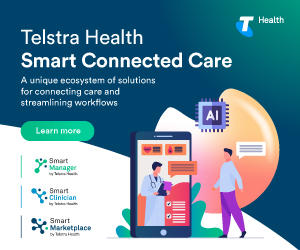What’s fuelling Australia’s Doctor Google habit?
Australians are increasingly turning to Google for assistance with medical inquiries – and it’s becoming a weekly habit. MedicalDirector’s recent report, Dr Google, How Self-Diagnosis Impacts Clinical Care, reveals one of the main reasons Australians habitually search for health answers online is simple: it’s fast and convenient.
How the Doctor Google impacts our access to health information
The rise of the digital age has created a dynamic shift in who is now doing the medical searching and health diagnosing. Previously, it was the realm of researchers, educators, or health practitioners to enter data and arrive at an analysis based on what the computer recommended.
Now, due to the increased use of smartphones, the speed of 4G Internet, wi-fi, and greater overall digital literacy, Australians of all ages can access medical information and ‘self-diagnose’ more quickly and conveniently than ever before
And with the rise of wearables, mobile devices and increased accessibility of the Internet, it’s no wonder Australians are finding it easier to turn to Doctor Google whenever or wherever a health fear unfolds. MedicalDirector’s recent report, Dr Google, How Self-Diagnosis Impacts Clinical Care, found almost half (49%) of respondents say they use Doctor Google, simply because it is convenient and easy.
The fine line between habit and addiction
MedicalDirector’s research, which recently gained significant media coverage, including being featured on Channel Ten, Channel Seven, Sky News, Sunrise, The Daily Telegraph and A Current Affair, found a majority (54%) of Australians are using Doctor Google at least weekly to look up medical questions and symptoms. Meanwhile 1 in 4 (24%) Australians say they use Google every day as their initial information source on medical questions and symptoms.
Google, in some cases, is usurping the health practitioner/patient relationship altogether. Almost three quarters of Australians (72%) say they have used Google to address their health needs instead of visiting a doctor – and of this number, 35% use Google instead of a doctor 1-5 times per month.
“The convenience of looking up health information on Doctor Google can easily turn from a habit to a full-blown addiction,” says GP and Chief Clinical Advisor at MedicalDirector, Dr Charlotte Middleton. “I’ve seen many patients who just can’t seem to stop Googling their symptoms – to the point where they need an actual intervention from family and friends to stop them doing it.”
Trusted health advisor or symptom sorter?
While Doctor Google is becoming an increasingly popular way to self-manage health issues, only 21% of Australians see Google as ‘extremely’ or ‘very’ trustworthy as a source for medical inquiries. In fact, the reach found most people (58%) view it as just a ‘somewhat’ trustworthy, or ‘not at all’ trustworthy source for medical inquiries.
“Bottom line is – go to your health practitioner and get a clinical diagnosis first, and then seek the right information to help you understand your condition and how to manage it,” Dr Middleton says. “Get your diagnosis from a trusted professional who is medically trained, not by a symptom sorter on Doctor Google. “
To access MedicalDirector’s FREE report, Dr Google, How Self-Diagnosis Impacts Clinical Care, click here.









